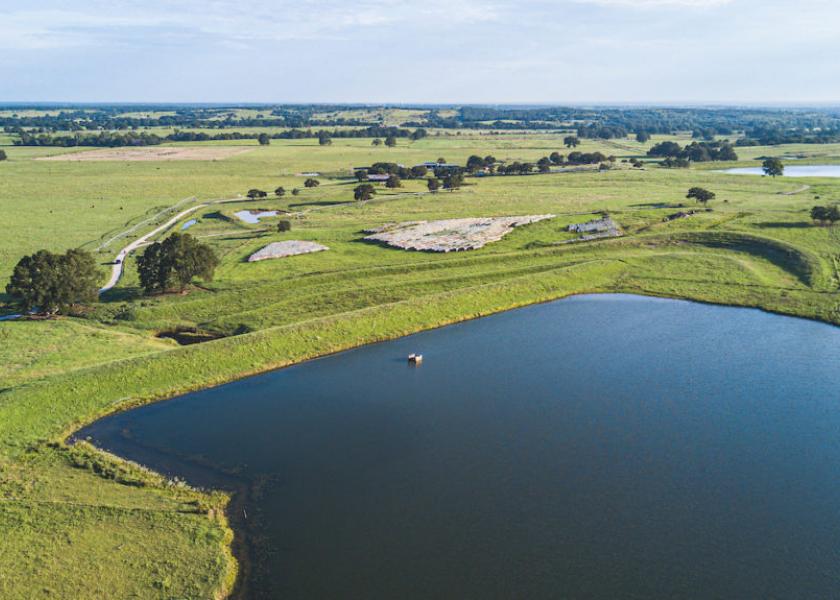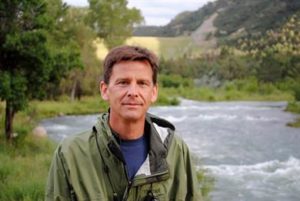Appeals Court Decision A Victory For Landowners

It’s a tale older than time: landowner vs. municipality in a long-fought battle for rights. But in one modern day version, the story didn’t end at city hall or the county courthouse. Anthony Fazzino and David Stratta’s case against the Brazos Valley Groundwater Conservation District went all the way to the Fifth Circuit Court of Appeals — one step below the Supreme Court. And the decision there has far-reaching, positive implications for landowners and cattle raisers across the state.
Jim Bradbury, a Fort Worth-based attorney who represents Texas and Southwestern Cattle Raisers Association and specializes in environmental litigation and eminent domain matters, says it all began when the conservation district granted the City of Bryan a permit for a new well.
Normally, he explains, with new wells, the permit holder must have acreage that equates with or related to the volume allowed. But when the Brazos Valley Groundwater Conservation District granted the city’s permit, they allowed for 3,000 gallons per minute on a three-acre site.
“With that large volume permit, you know it’s going to be pumping water out from underneath adjacent landowners’ property — like Fazzino’s,” Bradbury says.
Fazzino attempted to challenge the permit, but after going through an administrative proceeding, was told he did not have standing to do so. His next best option was to file for his own well, an offset well.
“If you’re familiar with oil and gas, you know the story,” Bradbury says. “If you don’t want your neighbor to drain you, you just put in a well yourself.”
The district — working closely with the city — however, had other ideas. Fazzino was told he couldn’t get a permit for the same 3,000 gallons per minute the city did unless he owned 649 acres.
Jim Bradbury
“He told them, ‘But you’re giving the city that with only three acres of land.’ He knew it wasn’t fair,” Bradbury says.
Still, his permit was denied.
David Stratta, a landowner and member of the Brazos Valley Groundwater Conservation District’s board of directors, was sympathetic, though, and suggested the district discuss the matter at their meeting that night. His fellow directors declined. Stratta then came up with Plan B. He signed up as a member of the public to bring it up at the meeting that way. The board precluded him from doing that, too. Finally, he says he’d like to put it on the agenda for the next meeting. Again, he was denied.
Left with no other choice, suit was filed in federal court in Waco but was dismissed entirely by the district judge. The judge concluded the groundwater district is the equivalent of a state agency, like the Texas Commission on Environmental Quality, and cannot be sued. He also concluded the matters of the state law at issue were so uncertain that, as a federal judge, he should abstain and decline to answer state law questions. Lastly, he concluded there was no First Amendment violation when Stratta was prevented from addressing it with the board.
The case was appealed and made it all the way to the Fifth Circuit Court of Appeals in New Orleans. Once there, the case was assigned a three-judge panel who would consider the parties’ briefs along with amicus briefs from multiple organizations, including Texas and Southwestern Cattle Raisers Association. These briefs don’t help argue either party’s case, but rather provide background information on policy implications for the judges to take under advisement.
On May 29, the panel announced their decision:
- Local groundwater conservation districts are not the equivalent of a stage agencies and therefore are not immune to lawsuits for takings and Constitutional violations. “From a policy standpoint, this is a good thing,” Bradbury says. “Because it tells them you need to take property rights more seriously than you have. You can’t just do what you want and say we’re immune.”
- The law in Texas is firm that landowners own the groundwater underneath their property and have a right to protect their fair share of the right to produce that groundwater.
- They ruled that Stratta’s First Amendment rights were not violated. Because he serves as a board member, the Open Meetings Act governed and those rules apply, not the First Amendment.
Bradbury says while the ruling was a victory for Fazzino, he’s not done.
“The court is saying he has a right to proceed on those two claims. They’re saying he should be able to take depositions, have a trial, carry that out, and ultimately the trial judge can decide that. The Fifth Circuit has put a box around that judge to say, ‘Don’t you kick this out, the law is certain, and you need to stand in there, hear the evidence, and decide it.’”
And that’s good news for all landowners.
“It’s huge,” Bradbury says. “Now we have a federal court looking at constitutional rights and equal protection and saying you can’t treat a city and the Mister Fazzinos of the world differently. You cannot let a city pump 3,000 gallons per minute out of a three-acre property and then tell some other landowner you have to buy a section if you want that much water.”








